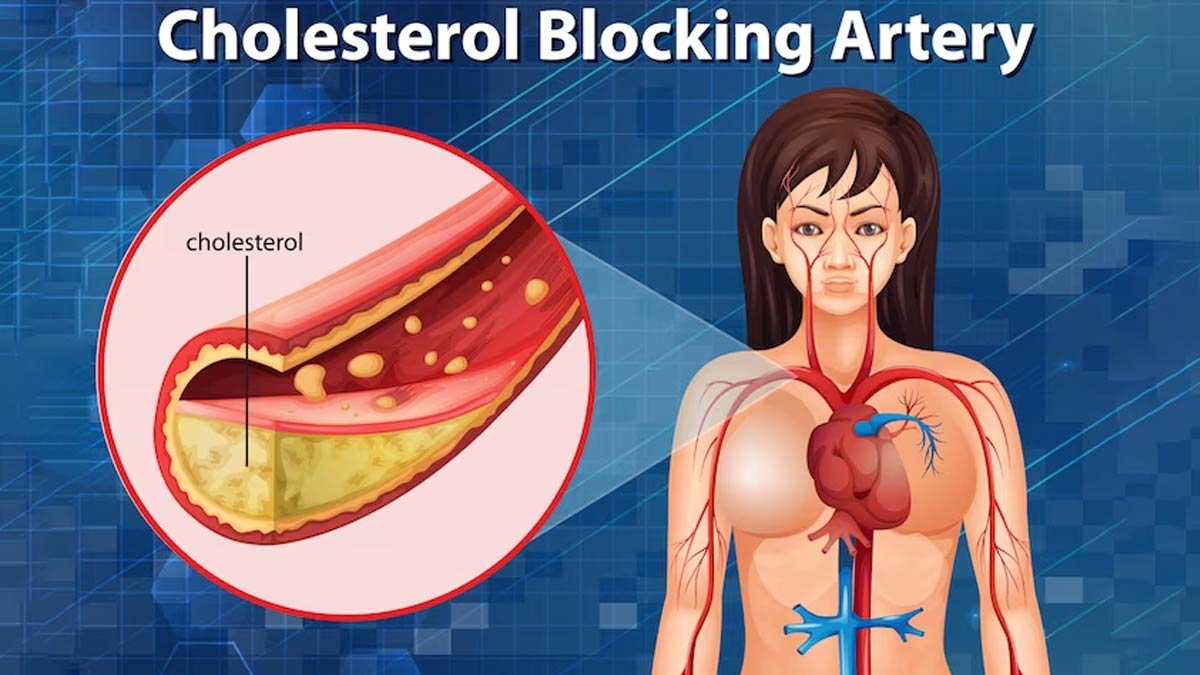
Oats and barley are high in soluble fibre, which helps in lowering cholesterol absorption into the bloodstream.
Cholesterol has the power to impact our lives in profound ways, both positively and negatively. As cholesterol is an essential building block for our cells, hormones and nerve fibers. Having said that, high levels of cholesterol can clog your arteries, leading to heart attacks, strokes and other cardiovascular diseases. So, whether we realise it or not, cholesterol is an important player in the story of our health.
Table of Content:-
Our food has a significant impact on our cholesterol levels. Some foods can raise bad cholesterol (LDL) levels in the body, while others can help lower it.
Best Cholesterol-reducing Foods
Oats and Barley
Oats and barley are high in soluble fibre, which helps to lower cholesterol absorption into the bloodstream. Eating muesli for breakfast or adding barley to soups and stews is a great method to decrease cholesterol.

Nuts
Almonds, walnuts and pistachios are high in monounsaturated and polyunsaturated fats, which help decrease LDL cholesterol. Eating a handful of nuts as a snack or incorporating them into salads and muesli will help lower your cholesterol.
Read: From Chest Pain To Vision Problems: Expert Lists Symptoms of Blocked Arteries
Fatty Fish
According to an article published in the National Institute of Health, fatty fish, such as salmon, mackerel and sardines, are high in omega-3 fatty acids, which help reduce inflammation and lower triglyceride levels.
Avocado
As per Nutrition Today, almonds, walnuts and pistachios are high in monounsaturated and polyunsaturated fats, which help decrease LDL cholesterol. Eating a handful of nuts as a snack or incorporating them into salads and muesli will help lower your cholesterol.

Fruits and Vegetables
Fruits and vegetables are low in calories and high in fiber, vitamins and minerals. Eating a variety of fruits and vegetables can help lower LDL cholesterol levels and reduce the risk of heart diseases.
Worst Foods for Cholesterol
Trans Fats
Trans fats are found in processed foods, such as cookies, crackers and fried foods. Trans fats raise LDL cholesterol levels and lower HDL (good) cholesterol levels, increasing the risk of heart diseases.
Saturated Fats
Saturated fats are found in animal products, such as meat, butter and cheese. Eating too much saturated fat can raise LDL cholesterol levels and increase the risk of heart diseases.
Processed Meats
Processed meats, such as sausages, bacon and hot dogs, are high in saturated fats and sodium, which can raise LDL cholesterol levels and increase the risk of heart diseases.
Read: Parkinson’s Disease: Expert Explains Its Early Signs And Treatment Options
Dairy Products
Dairy products, such as cheese, butter and cream, are high in saturated fats and cholesterol. Eating too much dairy can raise LDL cholesterol levels and increase the risk of heart diseases.
Fried Foods
Fried foods, such as fried chicken and French fries, are high in trans fats and saturated fats, which can raise LDL cholesterol levels and increase the risk of heart diseases.
Key takeaway is that diet plays a crucial role in determining our cholesterol levels. Eating a diet rich in fruits, vegetables, whole grains, lean proteins and healthy fats can help lower LDL cholesterol levels and reduce the risk of heart diseases. On the other hand, consuming a diet high in trans fats, saturated fats and processed foods can raise LDL cholesterol levels and increase the risk of heart diseases. Therefore, it is essential to make healthy food choices and maintain a balanced diet to keep your cholesterol levels in check.
Also watch this video
Read Next
7 Diabetes-Friendly Sweet Snacks
How we keep this article up to date:
We work with experts and keep a close eye on the latest in health and wellness. Whenever there is a new research or helpful information, we update our articles with accurate and useful advice.
Current Version